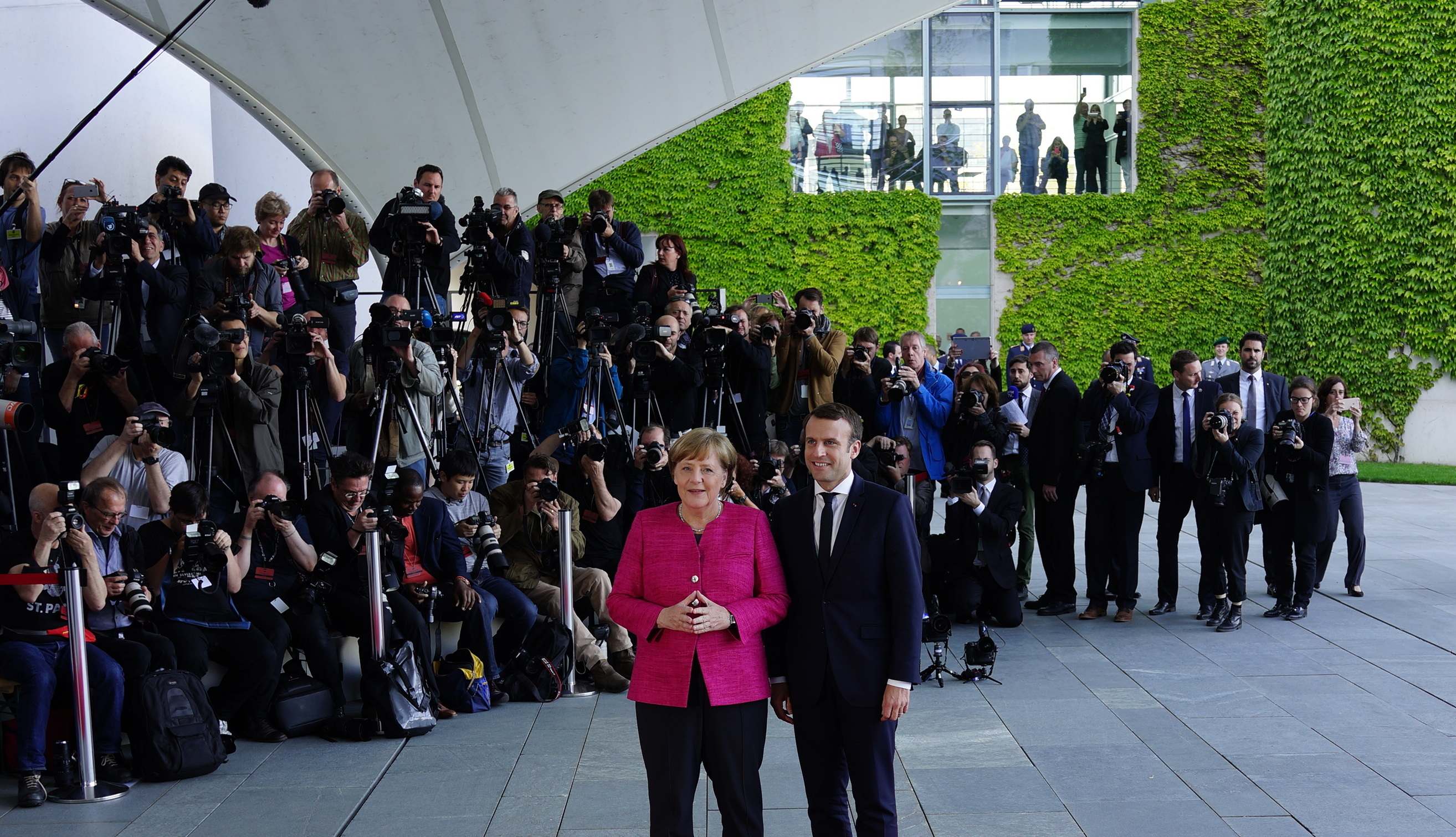LOC17:54
14:54 GMT
 German Chancellor Angela Merkel and French President Emmanuel Macron
German Chancellor Angela Merkel and French President Emmanuel Macron
BERLIN, Jan 22 (KUNA) -- German Chancellor Angela Merkel and French President Emmanuel Macron on Tuesday signed a new friendship treaty between their two countries on the 56th anniversary of the Elysee Treaty signing in Paris.
The so-called Treaty of Aachen commits the two neighbours to increased cooperation on foreign and defence policy, crime and terrorism, international development and research and economic integration, according to the Deutsche Press Agency (DPA).
The treaty, which still requires approval from both countries' parliaments, comes at a time when the European Union is struggling with rising nationalism that has resulted in Britain's exit from the bloc and threatens to tear the remaining 27 members apart.
Speaking during the ceremony at Aachen's town hall, Merkel said the treaty was necessary in light of "growing populism and nationalism."
"Seventy-four years after World War II, the duration of a human life, things that were considered self-evident are once again being questioned," Merkel said. "This is why a redefinion of the direction of our cooperation is necessary."
Macron said in his speech that threats to the EU came not only from outside the bloc, "but also from within our societies if we fail to respond to the raging anger" of citizens.
He was referring in part to France's so-called Yellow Vest movement, whose supporters are angry about the increase in fuel taxes and complain about road tolls, the rising costs of a commute and being priced out of urban centres.
Right-wing leaders including Marine Le Pen have seized on conspiracy theories that the treaty paves the way for ceding control of the Alsace region in eastern France and sharing France's permanent UN Security Council seat with Germany.
Also speaking during the ceremony, Romanian President Klaus Iohannis said Germany and France should open their planned bilateral cooperation up to other members of the EU in order to "strengthen union and solidarity" within the bloc.
Romania took over the rotating EU presidency earlier this month. (end)
anj.rk